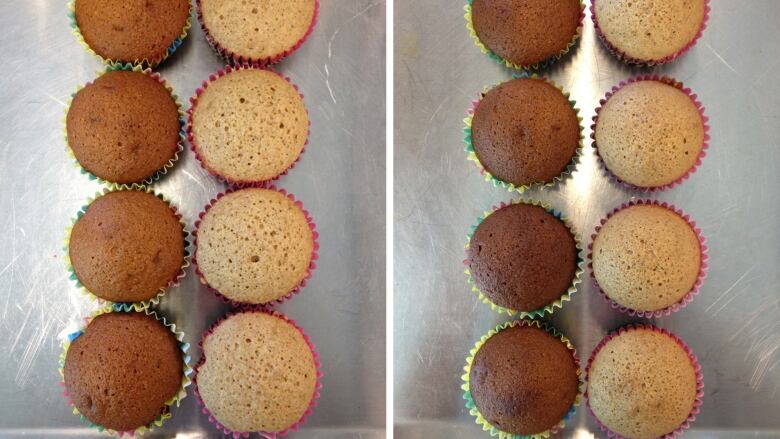Baking literally burns off sugar calories
Sugars are reactive when heated, which could reduce calories in baked goods, according to UBC research

This is an excerpt fromSecond Opinion, aweeklyroundup of eclectic and under-the-radar health and medical science news emailed to subscribers every Saturday morning.
If you haven't subscribed yet, you can do that byclicking here.
New Canadian research points topossible good news if you love dessert and are counting calories or are concerned about blood-sugar levels.
The research, from the University of British Columbia (UBC), suggestscalories from sugar can be lost during the baking process, so what's shown on a food label may not reflect calories consumed.
The results of the study, which was funded by a Canadian government grant throughNSERC,were recentlypublishedin the Journal of Nutrition & Food Sciences.
UBCfood scientistsmeasured the calories from sugar content before and after the browning process. They made two kinds of cake dough: one using invert sugar (a mixture of fructose and glucose) and another using sucrose (table sugar), andthen compared the amount of sugar retained in eachcake after baking.
The samples were then freeze-dried,ground into powder and put through a laboratory process using enzymes to mimic human digestion.
By comparing the sugar content before and after the baking process, the researchers found on average up to 20 per cent sugar loss in cakes made with invert sugar, according to the study's lead author,Ningjian Liang, a food science PhD student at the time of the research.
"In cakes that were made from sucrose, which is table sugar, we observed around five to eight per cent of sugar loss," she said.
In cake with invert sugar, researchers found the digestible or available calorie content decreased by 36 per cent, while in cake with sucrose,it declined by about 12 per cent.
UBCProf.David Kitts, who also participated in the study, said, "Sugars are very reactive when they're heated, and the products of these reactions may not be available to the host and, therefore, the calories associated with them are also not available to the host."
He said the browning reactions convert the sugar into compounds that aren't digestible or absorbed. These non-digestible products may be used by the microbiome or excreted, he said.
Kitts said all sort of studies have looked at the chemistry and biochemistry of non-enzymatic browning, but fewhave related it to this issue of calories.
"We just want people to be aware of the fact that calories can be lost during processing and that's not necessarily identified on the food label because the food label is what's in the formulation."
Food scientist Yvonne Yuan, who wasn't part of the study, found the research interesting.
The World Health Organizationrecommendsthat added sugars not exceed 10 per cent of total calories for adults and children, while Canadian health agencies suggest no more than 11 to 13 per cent of total calories, the researchers said.
"There is the concern of sugar intake in the diet, and we know that baked goods have perhaps been a concern in the most recent past around fats, but also now with the renewedfood labelling concerns around sugars. It's certainly timely," said Yuan, an associate professor who teaches food chemistry at Ryerson University.
To read the entireSecond Opinionnewsletter every Saturday morning,subscribe here.












_(720p).jpg)


 OFFICIAL HD MUSIC VIDEO.jpg)
.jpg)



























































































